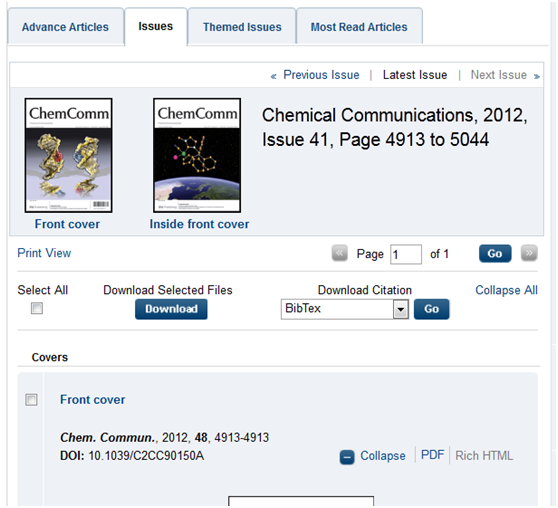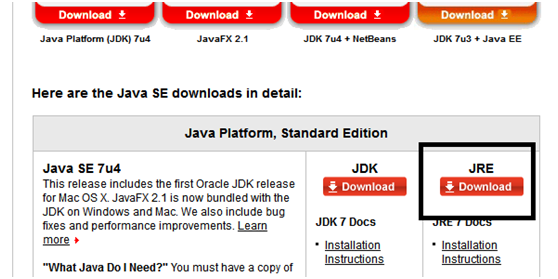Hi, my name is James Stevens and I’m the product development manager for journals and books. You can find out more about my team and how you can help improve our website at the bottom of this article but, first and foremost, I wanted to let you know that we have just released a new feature so I’ll pass you over to Colin Batchelor from our Data Science team to give you some background:
Citation velocity

Over the past couple of months we surveyed many of you, our readers, and it was clear that you wanted to read papers that were highly cited, especially hot papers which have been cited recently.
Our Data Science team experimented with different ways of ranking papers according to the number of citations* in order to find a method that gives the most interesting results for you.
First of all we tried:
- Ranking the total number of citations for all papers for all time
- Ranking the growth in citations for all papers over the past two years
These both gave useful information, but the list of top-ranked papers according to these two methods didn’t change from week to week and consisted of our “greatest hits”. Those papers would be familiar to readers of the journal already. For example, this paper: http://dx.doi.org/10.1039/TF9444000546 from Trans. Faraday Soc. in 1944 on wettability and duck feathers gets dozens of citations a year.
In order to find new and highly cited papers, we started to look at the most recent citations to articles published over the past two years. We compared the lists given by taking citations from the past 30 days, 90 days, six months and a year, and found that the 90 day period produced the most meaningful data for readers, even for the smallest journals, and a list that changes from week to week.
Why two years? It takes time for papers to be read and cited in a published article, so any period shorter than two years didn’t provide enough data.
How do we capture the “most recently cited” (to ensure that the most recent citations had the biggest effect on the list)? We did this by giving each citation a score, 1 for a paper cited today, 0.5 for a paper cited 45 days ago, and 0 for a paper cited 90 days ago. We worked out the total score for every paper by adding up its citation scores and then ranked the papers according to their scores.
This is called the citation velocity and you can now view it on any of our journal landing pages.
See it in action now on the Chemical Science journal.
*Citation data from CrossRef
Get involved in the evolution of our platform:
Thanks Colin, we look forward to getting your feedback on our new feature.
As you can see our publishing platform is changing and as such we would really like your help to ensure the changes we make are effective for your needs.
We have had feedback from users in certain countries around the world that the platform does not load as fast as some of our competitors. In other analysis work we’ve uncovered that there are certain features that some of you don’t use and, because of the large number of them on a page, the platform is hard to navigate, especially when using a phone or tablet. We will urgently focus on the improvements in these areas and in order to ensure we change the right things we need to understand the modern ways you carry out your scientific research, and in particular how we can make that easier and faster for you.
If you would like to support us in this process there are three areas where we think you could considerably help to speed up the time it takes to make improvements for you.
- Platform testing – in order to check that the development work we carry out improves the platform for its users we run test sessions (in person and via web conference) that we are currently recruiting for. We pay up to £50 to successful registrants and if you’re interested you can sign up via the following page: Register your interest
 Idea submission – we have set up a portal for publishing platform users to submit their ideas for platform development. We’re looking for new features or changes to our existing offering that will reduce the time or complexity of your research work. Please scan through the ideas we’ve already collected and vote (by clicking the vote box) on the ones that you’d like to see make it to development or add your own unique ones.
Idea submission – we have set up a portal for publishing platform users to submit their ideas for platform development. We’re looking for new features or changes to our existing offering that will reduce the time or complexity of your research work. Please scan through the ideas we’ve already collected and vote (by clicking the vote box) on the ones that you’d like to see make it to development or add your own unique ones.- Bug reporting – please use the feedback link on the platform navigation bar to report anything that is not working or is hard to use:
Further product management team information:
My team is responsible for ensuring the publishing website serves journal articles and book chapters up to researchers effectively. We strive to ensure the articles and chapters we publish are rapidly delivered around the world in formats that are easy to read and accessible to all who want to use them no matter what their physical capabilities.
It is our job to have regular catch ups and conversations with our authors and recognise that we have a duty as publishers to ensure that their work is easily found and accessed by others. We must showcase the high quality scientific research they submit to us in the best light on our website through the use of easy to read designs, quick to navigate layouts and an easy to use website structure.
In addition we need to make sure the website is always available for our worldwide audience, secure from intrusions, high performing and its content is regularly distributed to text miners, search engines and abstracting and indexing services.
Our aim is to ensure the features that we develop on our website have the most impact for you, our valued user. So, please get in touch, we’re looking forward to hearing from you.













